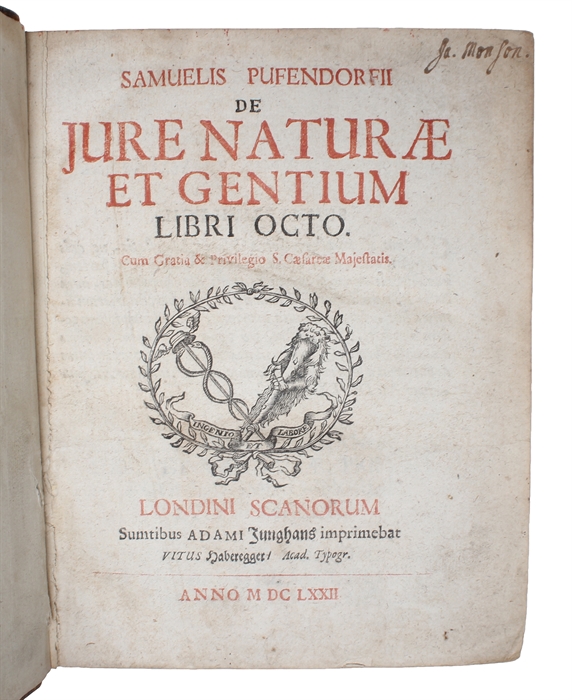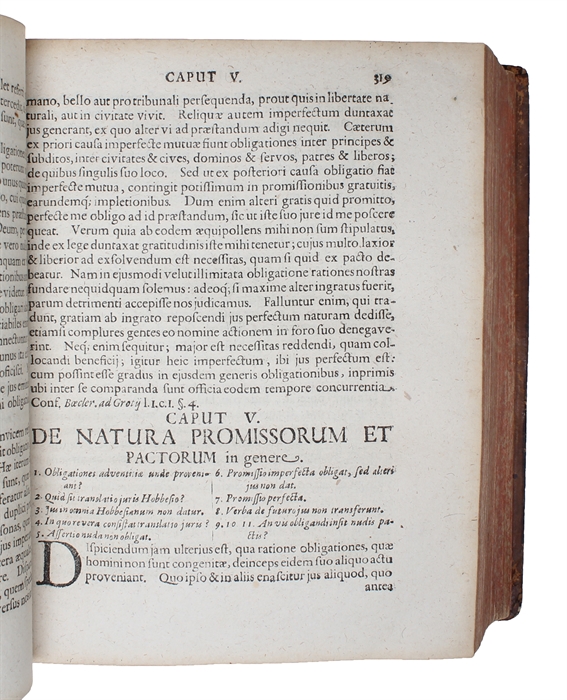THE STATE OF NATURE IS PEACE
PUFENDORF, SAMUEL von.
De Jure Naturae et Gentium Libri octo. Cum Gratia & Privilegio S. Caesareae Majestatis.
Londini Scanorum (Lund), Adami Junghaus - Vitus Haberegger, 1672.
4to. Contemporary full calf with double blindstamped borders to boards. Spine restored and hinges weak. Otherwise very nice. Title-page dusty and with a little weakness in the paper, presumably from a removed book-plate on the blank part of verso. Last secion of leaves with some light worming to upper blank margin, far from affecting text. All in all a very nice and clean copy with unusually good margins. Old owner's name to top of title-page. Title-page printed in red/black. (20), 1227,(9) pp.
Scarce first edition of Pufendorf's magnum opus, one of the fundamental works of natural law. In this milestone work of political and legal thought, Pufendorf presents his system of universal law, which profoundly revised the natural law theories of Hobbes and Grotius. In his teaching, that the will of the state is but the sum of the individual wills that constitute it, he shows himself a precursor of Rousseau and of the "Social Contract".
"It is a complete system of public, private and international law. Against Hobbes's view he contended that the state of nature was one of peace, not war, and heurged the view that international law... existed between all nations... [a work] of great importance" (David Walker, The Oxford Companion to Law).
"In the 'De jure naturae et gentium' Pufendorf took up in great measure the theories of Grotius and sought to complete them by means of the doctrines of Hobbes and of his own ideas. His first important point was that natural law does not extend beyond the limits of this life and that it confines itself to regulating external acts. He disputed Hobbes's conception of the state of nature and concluded that the state of nature is not one of war but of peace. But this peace is feeble and insecure, and if something else does not come to its aid it can do very little for the preservation of mankind.
As regards public law Pufendorf, while recognizing in the state (civitas) a moral person (persona moralis), teaches that the will of the state is but the sum of the individual wills that constitute it, and that this association explains the state. In this a priori conception, in which he scarcely gives proof of historical insight, he shows himself as one of the precursors of Rousseau and of the Contrat social. Pufendorf powerfully defends the idea that international law is not restricted to Christendom, but constitutes a common bond between all nations because all nations form part of humanity." (Encyclopedia Brit.).
Collijn: p. 744.
Order-nr.: 54537



